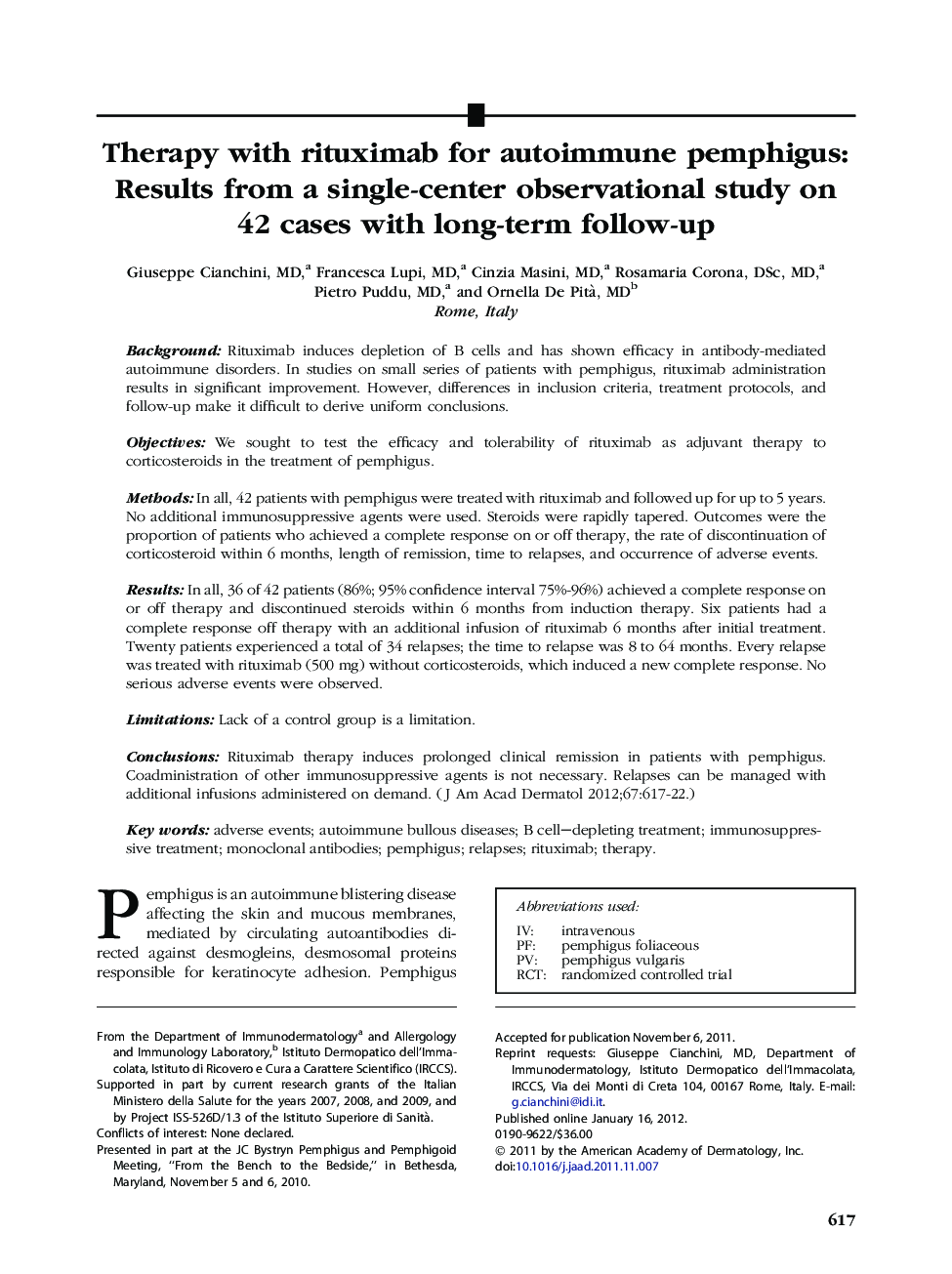| Article ID | Journal | Published Year | Pages | File Type |
|---|---|---|---|---|
| 3206210 | Journal of the American Academy of Dermatology | 2012 | 6 Pages |
BackgroundRituximab induces depletion of B cells and has shown efficacy in antibody-mediated autoimmune disorders. In studies on small series of patients with pemphigus, rituximab administration results in significant improvement. However, differences in inclusion criteria, treatment protocols, and follow-up make it difficult to derive uniform conclusions.ObjectivesWe sought to test the efficacy and tolerability of rituximab as adjuvant therapy to corticosteroids in the treatment of pemphigus.MethodsIn all, 42 patients with pemphigus were treated with rituximab and followed up for up to 5 years. No additional immunosuppressive agents were used. Steroids were rapidly tapered. Outcomes were the proportion of patients who achieved a complete response on or off therapy, the rate of discontinuation of corticosteroid within 6 months, length of remission, time to relapses, and occurrence of adverse events.ResultsIn all, 36 of 42 patients (86%; 95% confidence interval 75%-96%) achieved a complete response on or off therapy and discontinued steroids within 6 months from induction therapy. Six patients had a complete response off therapy with an additional infusion of rituximab 6 months after initial treatment. Twenty patients experienced a total of 34 relapses; the time to relapse was 8 to 64 months. Every relapse was treated with rituximab (500 mg) without corticosteroids, which induced a new complete response. No serious adverse events were observed.LimitationsLack of a control group is a limitation.ConclusionsRituximab therapy induces prolonged clinical remission in patients with pemphigus. Coadministration of other immunosuppressive agents is not necessary. Relapses can be managed with additional infusions administered on demand.
